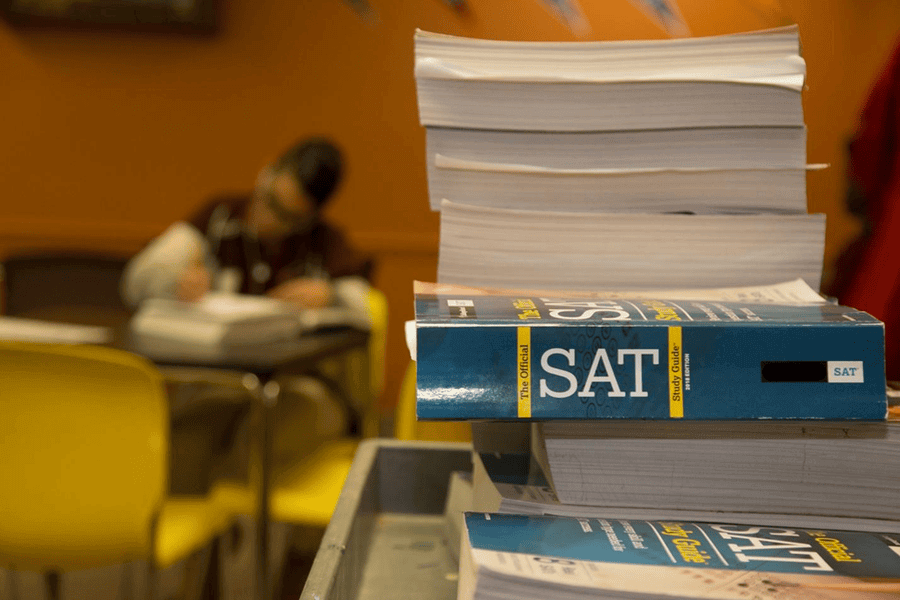The Graduate Management Admission Test (GMAT) is a globally recognised standardised exam used for admission into graduate management programs. Unlike the CAT, which Indian business schools primarily accept, the GMAT is acknowledged by institutions worldwide. To pursue an international MBA, taking the Graduate Management Admission Test is often a crucial first step.
Preparing for the GMAT shows business schools, both in India and abroad, that you’re equipped for the academic challenges of a management degree such as an MBA or Master’s in Management. Let’s explore effective strategies to help you study for the GMAT in a structured and focused way.
Essential Tips and Tricks to Prepare for the GMAT Exam
If you are going to take the GMAT examination, just go through these top GMAT preparation tips and tricks.
Understand the GMAT Structure Thoroughly
Before you dive into your prep, take time to grasp the format of the GMAT Focus Edition. The test comprises three primary components: –
- Quantitative Reasoning – Tests your problem-solving and basic math reasoning.
- Verbal Reasoning – Assesses grammar, comprehension, and critical thinking.
- Data Insights (DI) – A recently introduced segment that assesses your ability to analyze information and translate findings into practical business contexts.
Create a Study Schedule Early On
A well-planned preparation strategy helps you stay on track. Many candidates go for a 12-week prep plan, while others might need 3–6 months based on their strengths and weaknesses. To figure out how long you need, begin with a full-length mock test to evaluate where you stand and then tailor your study time accordingly. If you’re searching for how to prepare for the GMAT exam, start by setting a study schedule and reviewing the syllabus in detail.
Choose the Right Preparation Resources
Select study material that is similar to the examination format. Refer to online and offline resources. Prioritise trusted sources like: –
- GMAT Official Guide
- Manhattan Prep series
- Veritas Prep, Kaplan, Magoosh
- GMAT Club and Beat the GMAT forums
Practicing past questions also adds a valuable edge.
Also Read: Choosing the Right University? Here’s Why Graphic Era Should Be on Your List
Identify and Strengthen Weak Areas
Wondering how to prepare for GMAT? Begin by identifying your areas of strength and improvement, then develop a targeted study strategy. Assess your performance in each section and pinpoint the topics where you’re struggling. Focus your time and practice on those areas to turn them into strengths. This targeted effort can make a significant difference in your final score.
Avoid Spending Too Long on a Single Question
Time management is critical. If you’re stuck, move on instead of overthinking. The GMAT penalizes incomplete sections, so make sure you answer every question. Aim to spend no more than 2.5 minutes per question.
Master the Clock During Practice
Train yourself in a timed setting to enhance both your speed and precision. Identify which sections take up most of your time—if it’s Quant, for instance, dedicate extra time to sharpen those skills. Daily timed quizzes can help boost your pace.
Use Smart Guessing When Needed
If a question seems too complex or time-consuming, don’t get stuck. Employ elimination strategies to discard wrong choices and identify the optimal solution. Keep moving forward to avoid penalties for unanswered questions.
Boost Your Ability to Interpret Visual Data
As the GMAT features data visuals like charts and graphs, strengthening your ability to interpret them is essential. Becoming comfortable with data interpretation will help you answer quicker and more confidently, especially in the Quant and Data Insights sections.
Also Read: How to Prepare for the CAT Exam: Tips, Tricks, and Study Plan
Develop Exam-Specific Strategies
The GMAT doesn’t solely rely on subject knowledge but emphasizes mastering effective methodologies. Work on skills that will help during the actual exam, like smart elimination, time-saving shortcuts, and focus under pressure.
Practice Consistently and Regularly
Solving GMAT practice questions enhances time management, precision, and self-assurance. Once you’ve covered all the concepts, test your preparation with full-length mock tests and sample questions. You can take a GMAT mock test, which helps you understand the exam pattern and identify areas that need improvement.
Study Plan
Recognise Your Strength Areas
Once you’ve created a study schedule, begin identifying the areas where you perform well. While it may take time initially, comparing your performance across different GMAT sections will help. Knowing your strong points will not only increase your confidence but also help you score higher in those sections.
Target Your Weak Points
Improving on weak sections can be a game-changer. Whether it’s quantitative reasoning, reading comprehension, or data interpretation, it’s tough to master everything right away. Focus on topics that challenge you the most, and use sectional mock tests to gradually build clarity and confidence in those areas.
Focus on Conceptual Understanding
Don’t rush into solving complex problems without getting the basics right. Many students make the mistake of jumping into difficult Quant questions too early. Begin with understanding the fundamental concepts—once those are clear, the rest becomes much easier to grasp. Analyzing official GMAT sample questions can give insight into common question patterns and formats.
Take Full-Length Mock Exams Regularly
Mock tests are essential for tracking your preparation. Use trustworthy prep materials and practice in environments that mimic actual exam settings. Practicing past-year papers and using the official GMAT scoring model will help you understand the exam pattern and evaluate your progress effectively. A GMAT practice exam simulates the real test environment, making it an essential part of your preparation strategy.
Also Read: Top 10 Mistakes to Avoid During Your MBA Admission
Work on Speed and Time Management
Success on the GMAT requires not only correct answers but also efficient problem-solving within strict time constraints. Always practice with time limits to build your speed. As you improve your accuracy, make sure you’re also completing sections within the allotted time or ideally, finishing them early.
Apply Proven Test Strategies
Use tried-and-tested methods from top GMAT scorers. Don’t aim to get every single question right—know when to move on and avoid wasting time on particularly tricky questions. Test-takers should allocate no more than 150 seconds per item to maintain pacing throughout the exam.
Advance to Higher-Level Practice
Once you’re confident with the basics, challenge yourself with advanced-level questions. Use official GMAT advanced material to refine your comprehension, logic, and problem-solving skills. This step will help elevate your preparation and make you ready for tougher exam scenarios.
Scoring high on the GMAT can help you secure admission to some of the best colleges for MBA across the globe. Top MBA colleges often look for high GMAT scores and strong academic backgrounds during the admission process. That’s why enrolling in GMAT coaching or a structured training program can help you unlock your full potential and achieve your desired score. Stay committed, flexible, and driven—consistent dedication combined with a smart strategy will put success well within your grasp.








